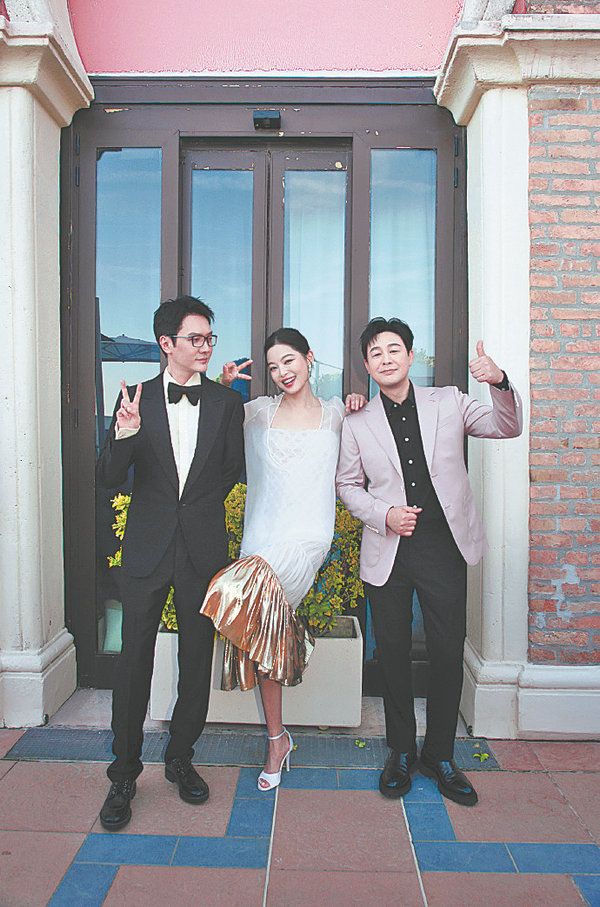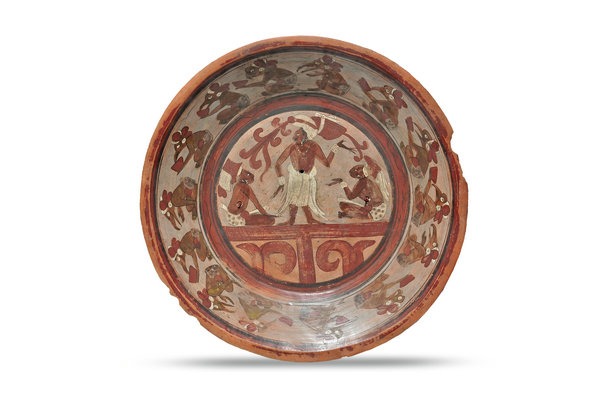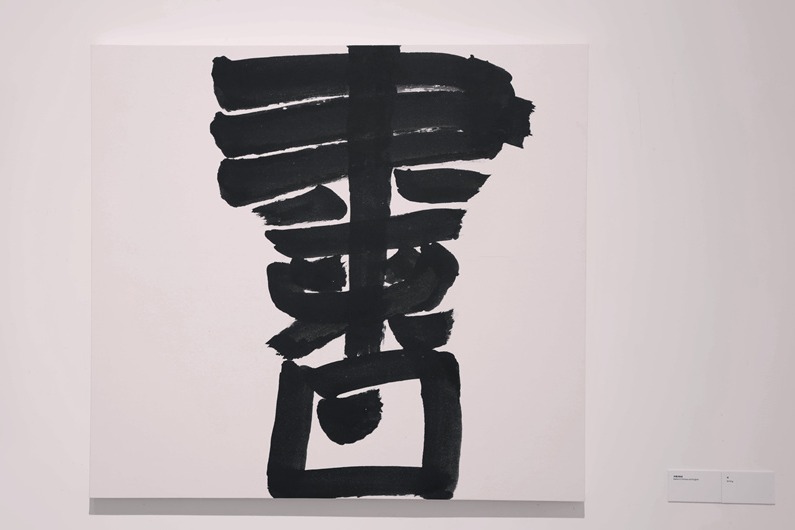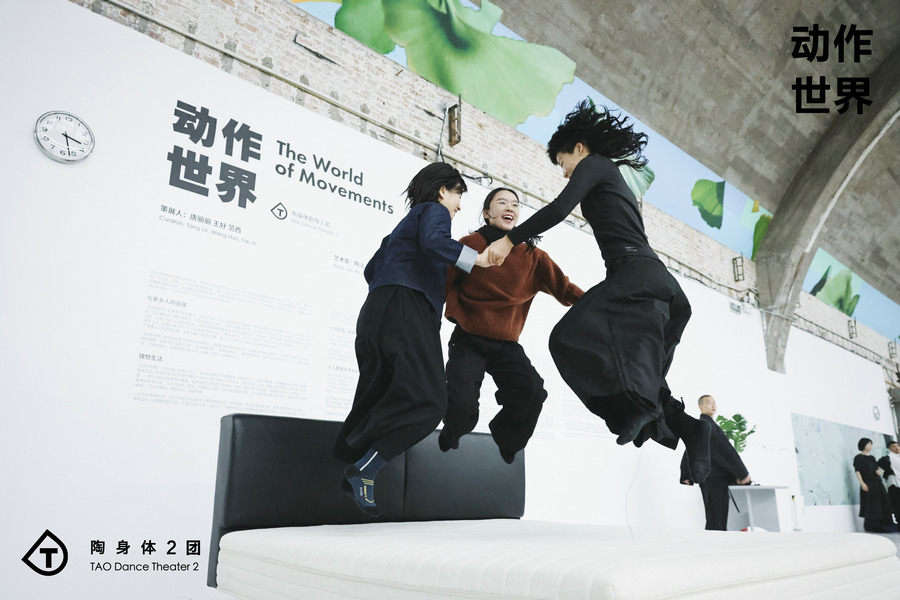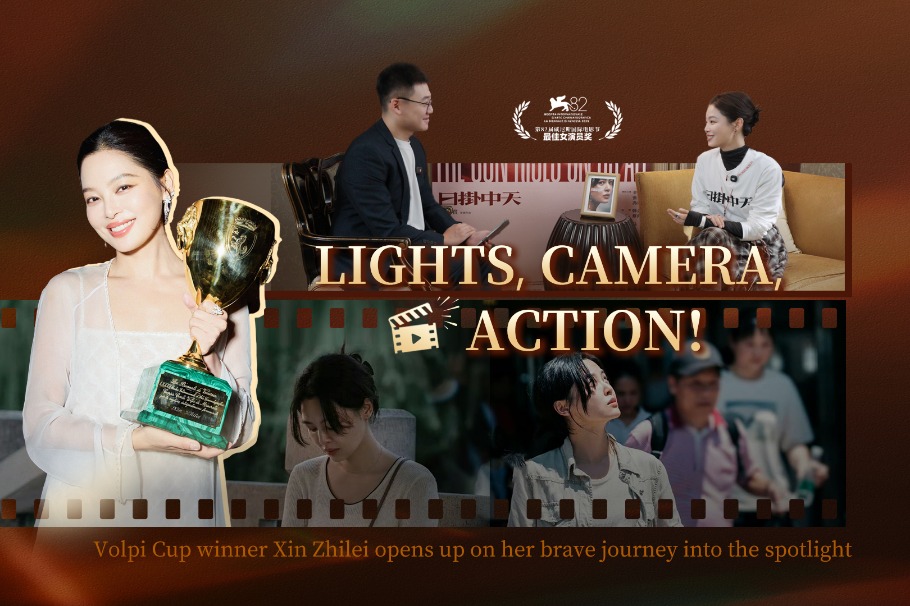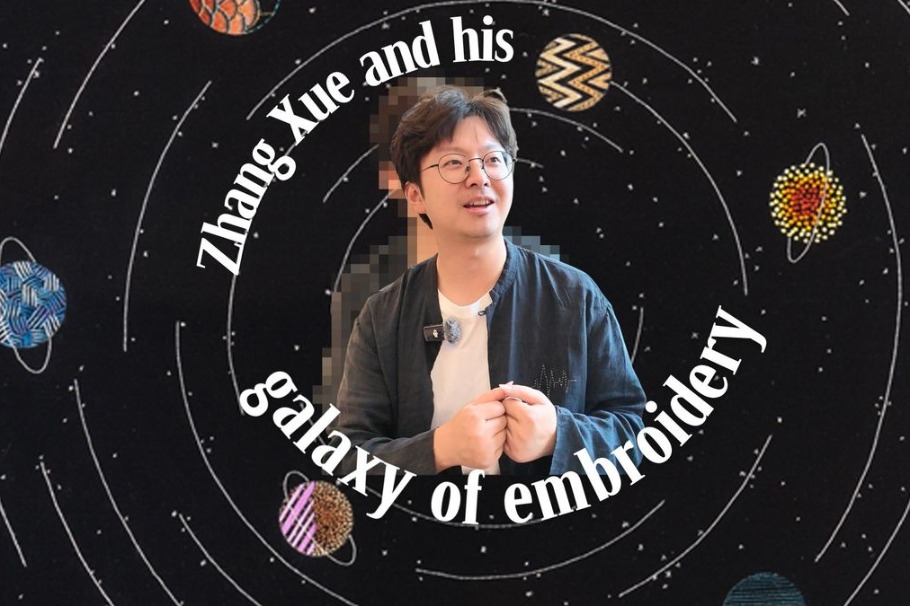A portrayal of love, guilt and redemption

When Xin Zhilei lifted the Volpi Cup for Best Actress at the 82nd Venice International Film Festival, it was more than a personal triumph — it was a moment that sparked a wave of shared pride across social media platforms.
The win makes Xin the second actress from the Chinese mainland to receive the honor at the world's oldest film festival, coming 33 years after actress Gong Li won the award for director Zhang Yimou's The Story of Qiu Ju in 1992.
The film that brought the actress, a native of Northeast China's Heilongjiang province, into the international spotlight, The Sun Rises on Us All, has been screening in domestic theaters since Nov 7, becoming one of the most popular Chinese films this month.
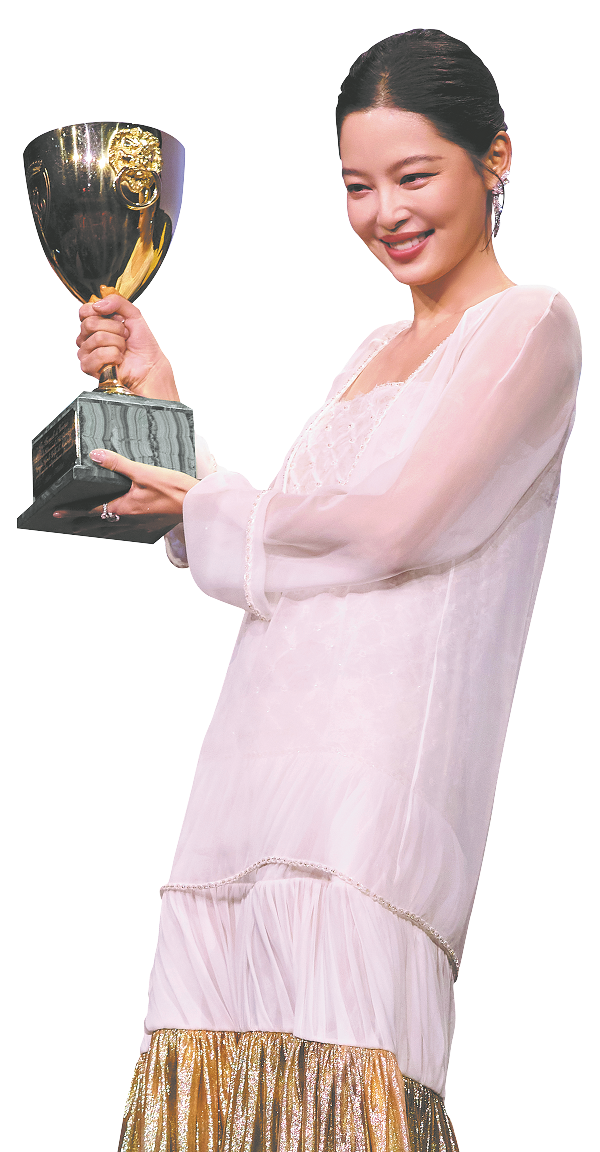
Yet, as Xin shares with China Daily, the prestigious prize has also brought unexpected pressure. "When I first returned from Venice, I boldly claimed I would get over the win in just five days. But I have gradually discovered that the trophy is much heavier than I had realized," says the 39-year-old star, known for her down-to-earth personality.
This introspection comes at a challenging time for the domestic film industry. The domestic film market has remained subdued since the lucrative National Day holiday, and with 2025 drawing to a close, a highly publicized film like The Sun Rises on Us All was once seen by some insiders as a potential boost for this year's box-office revenue.
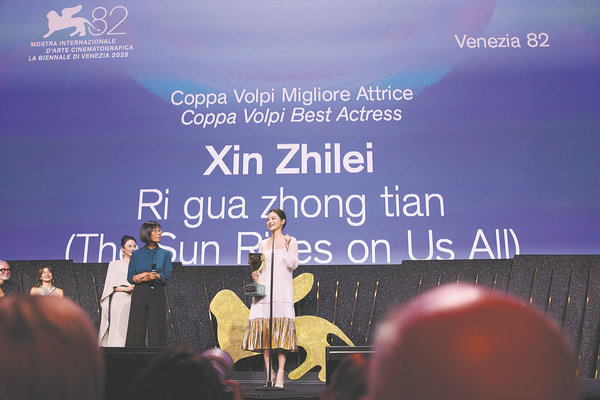
But with even blockbuster films losing their draw due to a shift in Chinese audiences' tastes, the prospects for an arthouse film are bleak. As of Wednesday, the movie had grossed over 20 million yuan ($2.8 million), with its box office estimated to decline further.
But for director Cai Shangjun and his wife Han Nianjin, who co-wrote the script, the difficult market environment still has a glimmer of light: the movie gave them a chance to do something "meaningful".
Set in the humid climate of a small city in southern China, the 120-minute film uses a restrained and understated tone to tell a story of love, betrayal and redemption, while exploring the complexities of human nature.
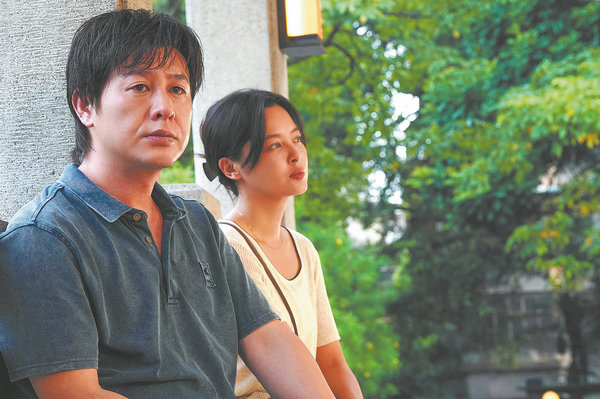
The story begins when Xin's character, Zeng Meiyun, who runs a small clothing store, unexpectedly runs into her ex-boyfriend Wu Baoshu, played by Zhang Songwen, during a hospital visit. She is pregnant with the child of a married man — portrayed by Feng Shaofeng — who is considering a divorce but is unsure due to concerns about his young daughter and his career.
Amid their respective struggles — Wu has been diagnosed with terminal cancer — their fates become intertwined once again. Years earlier, Wu took the blame for a crime that Zeng committed: a fatal hit-and-run for which he served five years in prison. Though financially strained herself, Zeng chooses to care for her former lover as an act of atonement — a decision that changes both of their lives in unexpected ways.
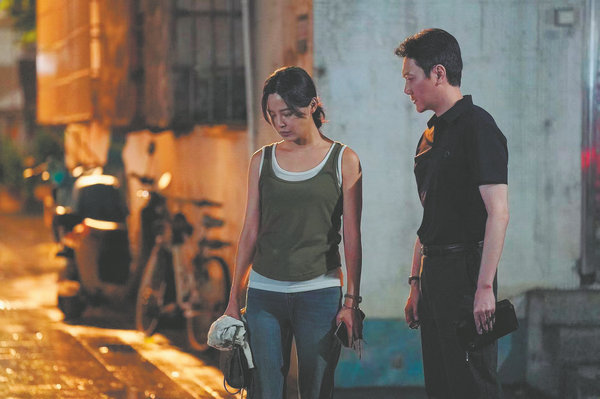
Xin says that Zeng is a role she has long dreamed of portraying. "When I first read the script, I immediately liked the character. She feels quite realistic, unlike the seemingly perfect female roles often depicted in films and TV dramas. The moral gray areas within her personality were both challenging and deeply attractive to me," she recalls.
In the film, Zeng makes a promise to wait for Wu's release from prison. Yet, after just over a year, she stops visiting him and disappears without a word. Worse, she never reveals the truth of the accident to Wu's mother before the elderly woman passes away — a silence that leaves Wu haunted by lasting guilt and regret.
"The character's struggle comes from carrying the burden of having taken a life, while her boyfriend offers to take the blame for her," Xin explains.
"Inside, a voice torments her, saying, 'You'll spend the rest of your life repaying him'. This pulls her into an endless conflict — trapped between moral chains and her desire to break free from the past, caught between guilt and a deep longing for spiritual freedom. It's this inner turmoil that causes her such profound agony," the actress elaborates.
Cai and Han began developing the script in 2020 after learning about the case of Zhang Yuhuan, a Jiangxi villager wrongfully convicted of murdering two children, who served 27 years in prison before his conviction was overturned.
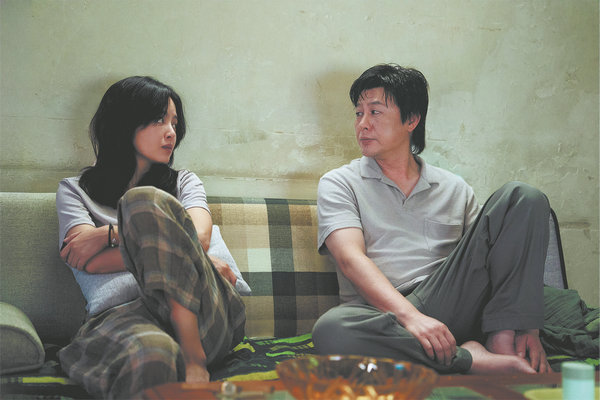
The filmmakers were particularly struck by the story of Song Xiaonyu, who had been married to Zhang for five years before his detention in 1993. Song consistently maintained his innocence and appealed the verdict, while singlehandedly raising their two young children and working to support the family. Years later, she was diagnosed with cancer and had to remarry out of financial necessity. But before remarrying, she set conditions for her current husband: that he must treat Zhang Yuhuan's sons well and allow her to visit her former mother-in-law.
Although Cai and Han initially contemplated writing the script from a male perspective, they ultimately centered it on a female protagonist. This choice allowed them to explore the moral dilemmas faced by ordinary Chinese people on a broader and more representative level.
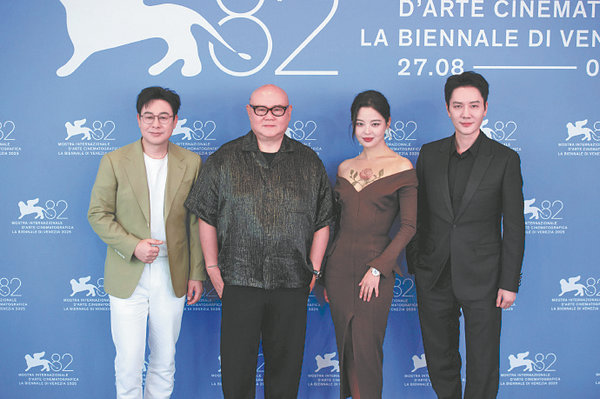
"Real life inherently contains profound drama — sometimes it strikes with intense impact, while other times it flows like a gentle, enduring undercurrent," says Han, adding that they also wanted to explore "how to repay a big emotional debt", a question distinctive to Eastern values.
Speaking of the film's title, inspired by a line from the Cantonese romance opera The Purple Hairpin, Han explains more about its metaphorical roots: "When a glimmer of sunlight flashes through a person's heart, it earns dignity and nobility for the person who is floating and struggling in a sea of suffering."
